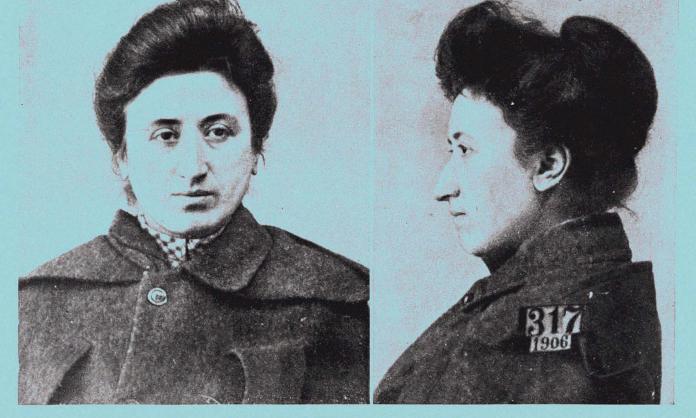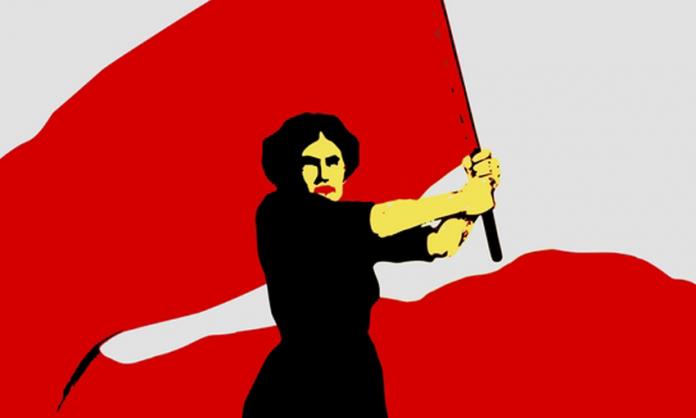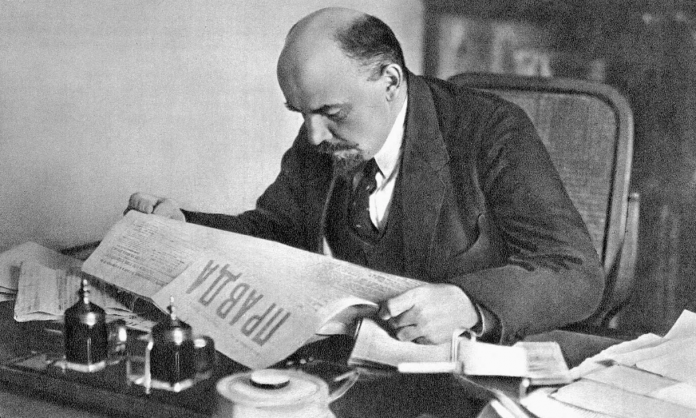From early in her political career, Rosa Luxemburg was concerned with the struggle against imperialism and war. Her analysis and the tactics she advocated weren’t all correct, but she was always on the side of the working class and its independent organisation, and of the oppressed. That was true in her approach to the “national question”, her responses to wars and her theory of imperialism.
Luxemburg grew up in the Russian-occupied province of Poland, called the Congress Kingdom. The authorities repressed the Polish language and culture. There was, for example, no legal Polish-speaking university. During the early 1890s, Luxemburg formulated an approach to the oppression of the Polish nation and the Marxist “national question” in general.
She argued that the Congress Kingdom should remain part of the Russian state. One of the most industrialised areas of the empire, it was economically integrated with the other territories under tsarist rule.
By severing that link, national independence would be economically disruptive and reactionary, she argued. Furthermore, Polish and Russian workers had a common interest in bringing down both tsarism and capitalism. Polish national rights could be fought for now and most effectively achieved within a democratised Russia.
She applied the same argument to Bohemia in the Austro-Hungarian Empire and Alsace-Lorraine in the German Empire. Both were also industrially developed and integral parts of larger economic units. But she supported the independence of economically backward Armenia from the Ottoman Empire.
Insistence on dogmatic rejection of any whiff of Polish nationalism, by Luxemburg and her fellow leader of the Social Democratic Party of the Kingdom of Poland and Lithuania (SDPKPL), Leo Jogiches, was a factor holding back the consolidation of revolutionary socialist forces in Poland until 1918. In December of that year, the Communist Workers’ Party of Poland was formed in a merger of the SDPKPL and the Polish Socialist Party-Left, which had split from the nationalist Polish Socialist Party a dozen years before.
Her argument failed to recognise how fights for national rights and national self-determination could be harnessed to struggles to weaken the world’s dominant powers, the states that are the greatest obstacles to achieving socialism, without compromising the independence of workers’ movements from bourgeois nationalist political currents.
But Luxemburg did forthrightly oppose the tsarist regime’s Russification policies in the Congress Kingdom and efforts to Germanise the Polish provinces of the German Empire. In 1900, she wrote:
“Truly, it is high time for the Polish people to shake off its lifelessness, to express its indignation, to rise to fight against Germanisation. How to lead this fight, which path is the most effective to defend the Polish nationality—these are questions that merit serious consideration.”
In response to a peace conference proposed by the tsar in 1898, Luxemburg identified it and similar ideas—predecessors of the United Nations—as farcical and ineffective means of preventing war. They are just public relations exercises for the military powers that participate in them, because “big-money capitalism and militarism depend on each other like siblings, bourgeois republics, whether constitutional or absolute monarchies, are nothing more than meaningless company signs for the organisation of the sectors of industry, trade, and agribusiness that make up capital”.
In the social crisis created by the Russo-Japanese War, she recognised revolutionary opportunities. Although in exile and a member of the German Social Democratic Party (SPD), she remained a leader of the SDPKPL in Russia’s Polish province. Luxemburg and her Polish party called on Russian and Polish workers to fight independently for revolutionary democratic change and not to rely on the tepid reform efforts of even the braver sections of the bourgeoisie. And, of course, she welcomed the revolution when it broke out in January 1905, still in the midst of the war. In December, she went to Warsaw to participate in it.
After a period of political activity and then imprisonment in Warsaw, and back in Germany, Luxemburg participated in the German Social Democratic Party’s 1906 congress. The party’s founder and leader, August Bebel, opposed a motion for a militant response to any German military intervention in revolutionary Russia. Luxemburg objected.
Then, at the 1907 International Socialist Congress, she and Vladimir Lenin, with their experience of the Russian revolution, successfully moved that the resolution on war include the assertion: “If war should ... break out, [‘workers and their parliamentary representatives in the countries involved’] have the duty to work for its speedy termination, and to exploit with all their might the economic and political crisis created by the war to arouse the population and to hasten the overthrow of capitalist rule”.
The resolution was adopted unanimously. But only a few of the International’s member parties and small minorities in others took it seriously.
In her most substantial work, The Accumulation of Capital, Luxemburg tried to demonstrate that imperialism, militarism and war are inherent features of capitalism. She provided scorching descriptions of the effects of imperialism, including the horrors of the Atlantic slave trade, the violence of British colonialism in India and French colonialism in Algeria, the British Opium Wars against China and the hyper-exploitation of peasants associated with the Egyptian state’s indebtedness to foreign lenders.
“Capital knows no other solution to the problem [of incorporating new productive resources and workers, and securing markets for its products] than violence, which has been a constant method of capital accumulation as a historical process, not merely during its emergence, but also to the present day ... Hence permanent military occupation of the colonies, indigenous uprisings, and expeditions to crush these are the order of the day for any colonial regime.”
The bedrock of her theory of imperialism, that it was a consequence of capitalism’s tendency to breakdown that gives rise to sporadic, unavoidable economic crises, was not only accurate but fully in accord with Marx’s analysis of the logic of capitalist development. But Luxemburg’s explanation of the main mechanism that gives rise to the breakdown tendency and consequently to imperialism was wrong.
Her account, and less elaborate versions of it outlined by earlier Marxists, was ultimately based on the pre-Marxist underconsumptionism theory of Simonde de Sismondi. They believed that capitalist production outstrips the capacity of society to consume, especially because the purchasing power of the working class is restricted by their exploitation. All the commodities produced can be sold and profits maintained only if the excess over what was consumed within the framework of capitalism is disposed of by selling it outside of that framework—so sales to classes not involved in capitalist relations of production or in areas where capitalism is little or undeveloped. Capitalist states’ competition for control over control such territories leads to the establishment of “protectorates”, annexations and war.
Such measures to “realise” all the surplus value produced within capitalist relations of production, she argued, can temporarily hold off the system’s tendency to break down. But the incorporation of additional social layers at home and areas abroad into capitalist markets leads to the extension of production relations and the problem of overproduction is reproduced on a larger scale.
Capitalism’s core economic contradiction, however, lies deeper than the problem of finding outlets for commodities that have already been produced. The very process of increasing the productivity of labour, by applying more and more machinery and equipment in the heart of capitalist production, means that the rate of profit tends to fall.
Rather than being driven by a need to realise surplus value, imperialism provides a series of mechanisms that increase the amount of surplus value available to particular countries and corporations in competition with each other. These include (preferably monopoly) access to natural resources and cheap labour power; unequal exchange between the outputs of higher tech industries in imperialist countries and those produced with cheaper production techniques elsewhere; and high-interest loans.
Nevertheless, unlike Karl Kautsky, the principal theorist of the SPD, and the International, Luxemburg insisted that imperialism and war were inherent in capitalism rather than optional extras.
So, while most “socialist” parties sided with the ruling classes of their countries, Luxemburg took the International’s position on war, which she had formulated, seriously when the First World War broke out. She opposed the conflict and recognised the opportunities for revolution it could open up. Her position was spelt out in the Junius Pamphlet (see separate article).











